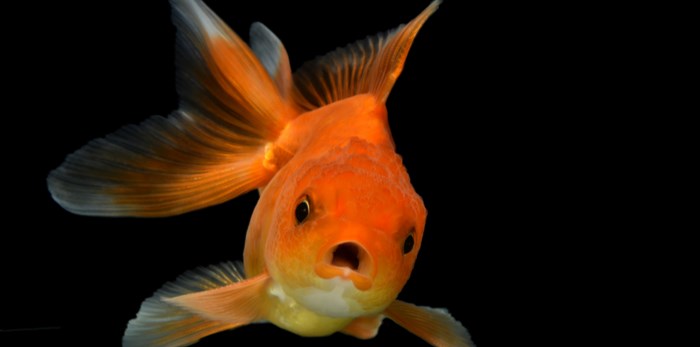Goldfish are thriving where they shouldn’t be at all.
The common pet fish has recently been found in abundance in Pinecrest Lake, north of Squamish. The Pinecrest Lake Stewardship Society alerted the Sea to Sky Invasive Species Council, a local environmental group, after they spotted goldfish in the lake.
 Goldfish/Shutterstock
Goldfish/Shutterstock
It is suspected the infestation began earlier this season, in spring or early summer after pet goldfish were released into the lake, according to a news release from the council.
“When released into the wild, goldfish are considered invasive because they are not native to this area, they lack natural predators, reproduce prolifically and quickly dominate aquatic environments. What’s more, case studies conducted in other parts of Western Canada show that the winter freeze is not enough to keep them in check,” says the news release.
Goldfish grow to meet their surroundings, meaning they can grow to the size of a football in a lake and can outcompete native fish for food.
They also disturb sediment, which increases the turbidity in the water and can impact aquatic plants and make it harder for other fish to catch food.
There are only two ways to deal with an infestation of goldfish and neither is particularly attractive.
“One is to kill off all the fish in the lake using a chemical called Rotenone. Rotenone is a naturally occurring chemical found in the roots of some South American plants. The lake later has to be repopulated with native species, and you can imagine that this is an extremely pricey and unpopular option,” explained Clare Greenberg, SSISC’s executive director.
A less effective option is to attempt to reduce the goldfish population by electrofishing.
In this scenario, “an electric current is sent through the water body, which affects the movement of the fish and causes them to swim towards the device’s electrodes, where they can be caught,” said Greenberg, adding it is difficult to catch all the goldfish.
The Pinecrest Lake Stewardship Society and the Resort Municipality of Whistler are exploring these options.
The Sea to Sky Invasive Species Council reminds goldfish owners to never release animals into the wild, and never dump aquariums or water garden debris into rivers, streams, lakes or storm sewers.
“Releasing unwanted pets is not only cruel, it is also dangerous to the environment, as well as illegal,” said Greenberg.
You can find out more humane ways to dispose of an unwanted Goldfish here.
For even more information, you can refer to the Invasive Species Council of BC website, or contact SSISC.



